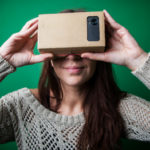
A Virtual Reality Project for Collaborative Global Learning
Virtual reality (VR) has evolved from a technology of the future into a practical educational tool for students to interact with the world in ways

Virtual reality (VR) has evolved from a technology of the future into a practical educational tool for students to interact with the world in ways

Magna Publications © 2024 All rights reserved